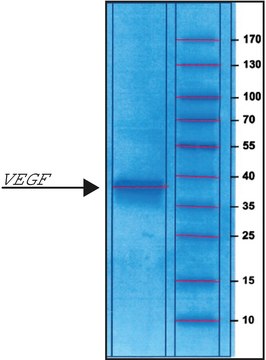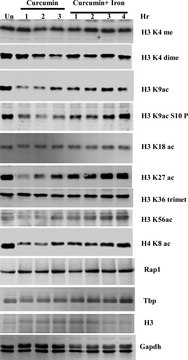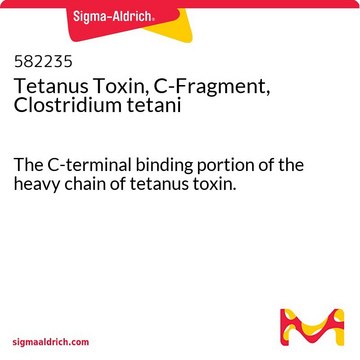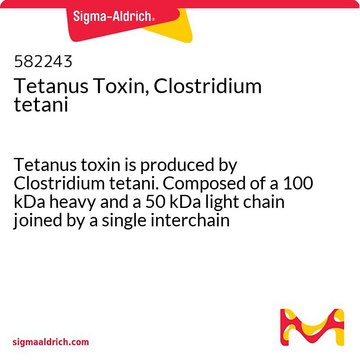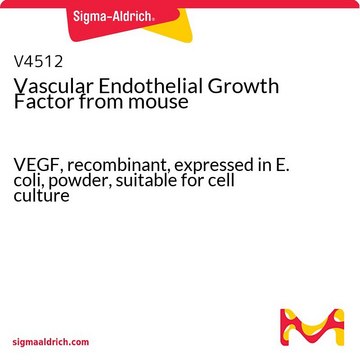T3694
Tetanus toxin C fragment from Clostridium tetani
Synonym(s):
TTC
Sign Into View Organizational & Contract Pricing
All Photos(1)
About This Item
Recommended Products
Related Categories
General description
Tetanus toxin C fragment (TTC) is a non-toxic peptide, which is transported from peripheral axons into spinal motoneurons. It provides protection for motoneurons (MN) in the spinal cord in vivo. TTC regulates membrane binding, internalization and retrograde transport within MN. It initiates neurotrophin-regulated signaling pathways in a Trk receptor-dependent manner. TTC has neuroprotective property in primary cerebellar granule cell culture.
Application
The C terminal binding portion of tetanus toxin is not toxic but is taken up by pre-synaptic nerve terminals and exhibits trans-synaptic retrograde transport in central neurons similar to that of tetanus toxin.
The C terminal binding portion of tetanus toxin is not toxic but is taken up by pre-synaptic nerve terminals and exhibits trans-synaptic retrograde transport in central neurons similar to that of tetanus toxin. It is used to map neuronal connections and to target proteins to neurons.
Biochem/physiol Actions
Tetanus toxin is a neurotoxin that comprises of a heavy and a light chain linked by disulfide bridges. This neurotoxin enters the cytoplasm and releases the light chain component that subsequently inhibits the release of neurotransmitters2. Studies have reported that the fragment C of tetanus toxin retains most of the determinants that interact with thyroid membranes, gangliosides and neural membranes3.
Reconstitution
Each vial, when reconstituted with 50 μl of sterile distilled water, contains 10 μg of tetanus toxin C-fragment in 0.01 M sodium phosphate, pH 7.5. To aid recovery, 0.1% albumin may be added.
Signal Word
Danger
Hazard Statements
Precautionary Statements
Hazard Classifications
Acute Tox. 1 Oral - Acute Tox. 2 Inhalation - STOT SE 1
Target Organs
Central nervous system
Storage Class Code
6.1A - Combustible acute toxic Cat. 1 and 2 / very toxic hazardous materials
WGK
WGK 3
Flash Point(F)
Not applicable
Flash Point(C)
Not applicable
Choose from one of the most recent versions:
Already Own This Product?
Find documentation for the products that you have recently purchased in the Document Library.
Customers Also Viewed
Our team of scientists has experience in all areas of research including Life Science, Material Science, Chemical Synthesis, Chromatography, Analytical and many others.
Contact Technical Service


